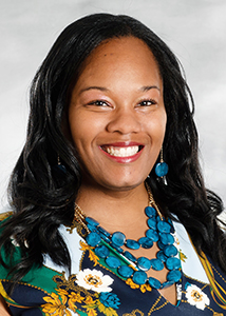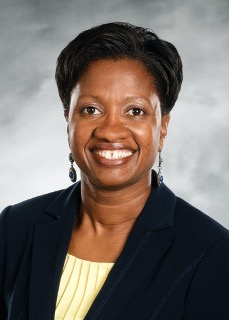
Welcome to AEA365 STEM Program Evaluation Lab (SPEL) week, co-directed by Ayesha Boyce, Ph.D., Associate Professor at Arizona State University and Aileen Reid, Ph.D., Assistant Professor at UNC Greensboro, along with SPEL faculty affiliate, Tiffany L. S. Tovey, Ph.D., Clinical Assistant Professor, UNC Greensboro.

Together, we train 11 graduate and 6 undergraduate students and evaluate/research 14 STEM education projects. SPEL is unique in that it is modeled after research laboratories that are common in Science, Technology, Engineering, and Mathematics (STEM) fields. Our design includes co-directorship by two faculty members, integration of graduate and undergraduate students, and funding through sponsored research and evaluation contracts. In our post we share a few Hot Tips and overview the posts for the rest of the week, all written by undergraduate and graduate students in our lab.
Hot Tips:

Co-Leadership model: SPEL is co-directed by two Black women faculty members, which is not typical as students don’t often see Black women getting million-dollar grants, or leading these big research initiatives, particularly in our field. Therefore, it’s really important for them to see this representation. The co-leadership approach helps us to manage our large team of students, projects, and weekly three-hour lab meetings, which include an hour of professional development and project check-ins. This co-leadership model also enables SPEL to grow its capacity to compete for large evaluation projects.
Fully Funded Assistantships: We ensure that our projects are able to financially support students. We submit budget proposals that provide assistantships and tuition waivers for graduate students. We also apply for university sponsored undergraduate research grants to support our vision for undergraduate training in evaluation.
Graduate students mentor undergraduates: The profession has no undergraduate degree programs and there is no clear pathway into evaluation graduate degree programs. We focus on mentoring undergraduates in other fields, currently psychology, with hopes that they will go on to pursue graduate degrees in evaluation. In SPEL we have instituted a mentor-mentee model where one undergraduate student is paired with at least two graduate students on a weekly basis to work on evaluation projects. Undergraduates receive training in qualitative and quantitative research and other technical skills, evaluator competencies, co-authoring evaluation reports, and presenting to funders and at professional conferences. Graduate students in return, gain valuable supervisory experience to complement their applied research and evaluation experiences and coursework.
Social justice oriented training and development: One aspect of the lab we are particularly proud of is our social justice commitments which show up as culturally responsive evaluation practice and anti-racist, equity, diversity, and inclusion training. Students receive training in the Values-Engaged Educative (VEE) evaluation approach, which defines high-quality STEM educational programming as that which successfully integrates pioneering scientific content, robust instructional pedagogy, and sensitivity to diversity, equity, and inclusion (DEI). Students also participate in weekly professional development sessions led by faculty and invited speakers.

In this week’s posts, our students share insights from their experiences in SPEL, including tips for implementing DEI in our current evaluation climate, training multicultural students, mentoring undergraduate students from both the graduate and undergraduate perspective, and reflective practice.
Rad Resources:
- Boyce, A. S. (2017)
- Greene, J. C., DeStefano, L., Burgon, H., & Hall, J. (2006)
- Kendi, I. X. (2019)
- LaVelle, J. M. (2018)
- Reid, A. M. (2020)

Hello Aileen, Ayesha and Tovey,
I found your blog, STEM Program Evaluation: Training culturally responsive evaluators very intriguing. I am proud to be Chinese Canadian but as someone from a visual minority background in Canada, I have come across many examples of a lack of cultural responsiveness while growing up in this country. Yet, I have noticed a shift in tone with more willingness to see that there is a need to become culturally responsive. Within my own country, I hear people from younger generations wanting to learn and understand other cultures and acknowledge there are people of other ethnicities who face discrimination, biases, xenophobia and racism.
In British Columbia, students starting at the elementary levels (Kindergarten – grade 6) are learning about how Indigenous children were forced to attend Residential Schools, and one of the purposes of learning this atrocity is to create reconciliation and to prevent similar crimes from reoccurring. You might have heard in the news that over three thousand unmarked graves of children ages four to sixteen have been found across Canada.
I believe in your work and I am curious what you think the best theory of logic model is to have these difficult conversations and help people become culturally responsive? How does an evaluator approach their clients with these findings? I love how there is a representation of women from different ethnicities receiving million-dollar grants. Another question I have is how can other groups, such as public education, receive this form of education when there is a lack of funding?
I look forward to your response,
Kira